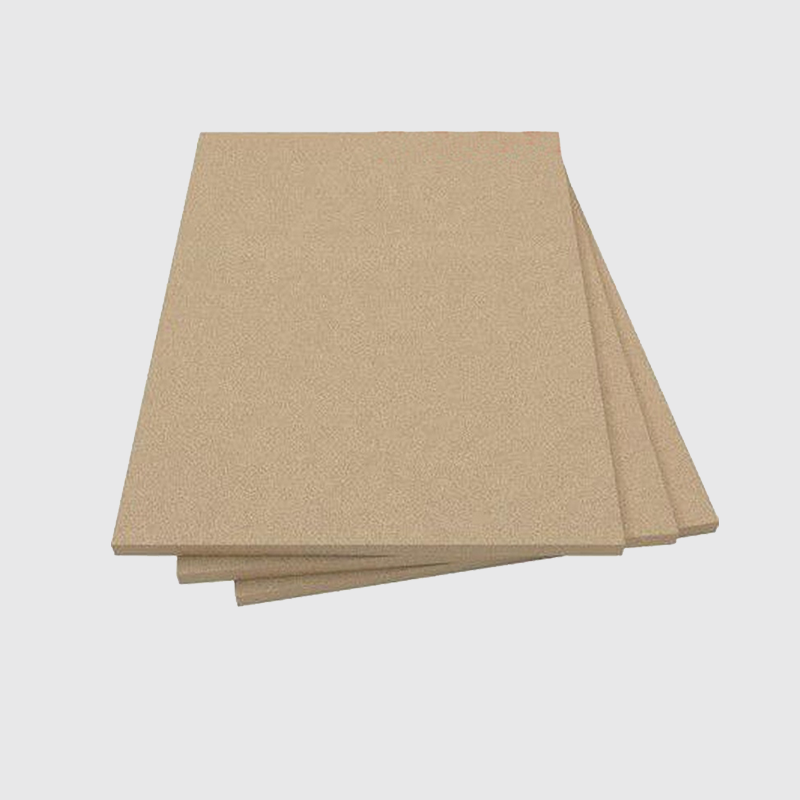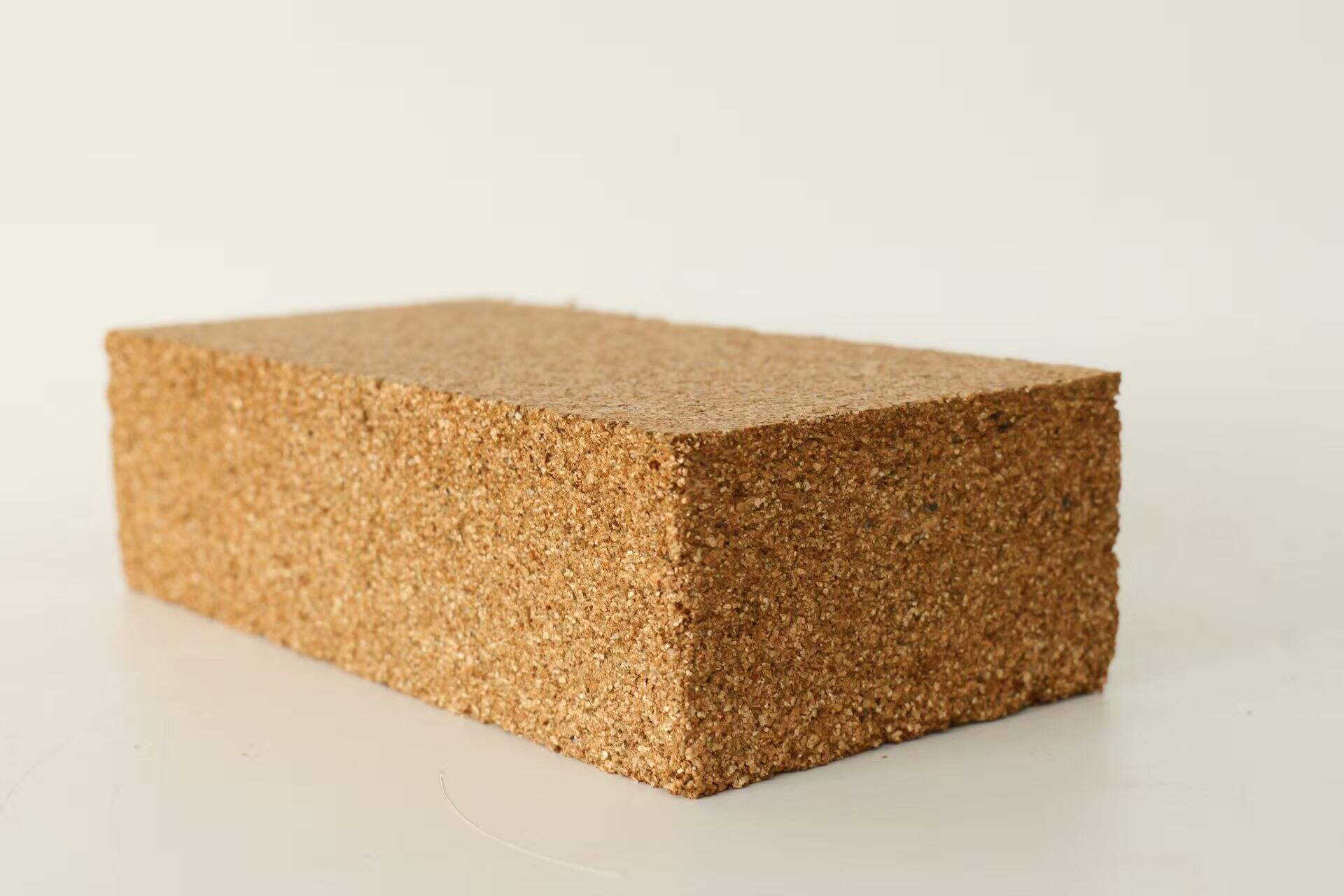The Science Behind Vermiculite Fireproof Boards
Mineral Composition and Expansion Process
Vermiculite stands out among minerals because of how it expands when heated, making it great stuff for insulating against high temperatures. Formed through the hydration of volcanic glass, this mineral packs a lot of magnesium and aluminum into its structure. What makes vermiculite special is that these elements allow it to puff up dramatically once exposed to heat around 1000 degrees Celsius. When heated, the mineral actually flakes apart layer by layer, creating those light weight particles we all recognize. This flaking process really boosts its ability to handle heat, which explains why industries rely on vermiculite so much for insulation purposes. Many factories and construction sites prefer vermiculite boards specifically because they work so well at keeping things cool or warm depending on what's needed, plus they tend to last quite a while too.
Thermal Shock Resistance Mechanisms
What makes vermiculite boards so good at handling thermal shock? Their layered structure plays a big part in this. When exposed to heat, these layers help the material take in and release energy quickly, which means it doesn't crack easily even when temperatures jump around suddenly. Studies show that vermiculite stands up pretty well against extreme heat without breaking down or losing its shape, lasting much longer than standard insulation options on the market today. Industrial settings often face wild temperature swings, so this kind of durability matters a lot. That's why many facilities choose vermiculite boards not only because they keep things insulated but also because they contribute significantly to fire safety measures. These boards offer dependable protection where regular materials might fail under tough thermal conditions.
Key Performance Characteristics
High-Temperature Endurance up to 1200°C
Vermiculite fireproof boards can handle temperatures reaching around 1200 degrees Celsius, making them great protection against intense heat situations. The fact that these boards maintain their strength during fires is really important for stopping dangerous incidents, especially where there's heavy industry going on like in metal processing plants. Research shows that when exposed to high temps, vermiculite insulation doesn't break down physically or chemically, so it keeps performing well over time. Because of this reliability, many industries choose vermiculite materials for their insulation needs whenever dealing with extreme heat conditions.
Chemical Resistance to Cryolite and Fluorides
Vermiculite boards stand up really well to corrosive stuff like cryolite and various fluorides, which makes them great for those tough industrial environments. What's interesting about vermiculite is how inert it stays when exposed to these chemicals. This means there's no reaction happening that would break down the insulation over time. The material basically just sits there without changing, so the insulation lasts longer and works reliably even after years of service. Aluminum manufacturing plants know this all too well since they deal with plenty of chemical exposure day in and day out. For applications where insulation needs to touch aggressive substances regularly, vermiculite tends to be the go-to option across many industries because of this protective quality.
Eco-Friendly and Non-Toxic Construction
Made from natural minerals, vermiculite fireproof boards present a green alternative for construction projects that want to follow sustainable practices. These boards contain no harmful stuff either, which is a big plus compared to many synthetic options on the market today. One major benefit? Vermiculite doesn't release those nasty VOCs we all hear so much about these days. That means cleaner air inside buildings where people actually live and work. Builders love this material because it's completely non-toxic, making it popular choice for insulation across different types of structures. When contractors install these boards, they're not just creating safer spaces but also contributing to more efficient building processes that care about the environment. The construction industry needs solutions like this if we want to keep moving toward greener practices without sacrificing quality or safety standards.
Industrial Applications of Vermiculite Insulation
Aluminum Electrolysis Cell Protection
In aluminum electrolysis cells that face intense heat and chemical attacks, vermiculite insulation stands out as essential protection. Vermiculite boards provide excellent thermal barriers while standing up against corrosive substances, making these industrial processes both safer and more efficient. Research conducted across multiple facilities shows that vermiculite can actually prolong the life of critical electrolysis parts by shielding them from damaging environmental factors. For aluminum producers looking to cut down on downtime and repair expenses, this material proves invaluable. Plants that switched to vermiculite insulation report noticeable improvements in day-to-day operations, though installation does require careful planning due to the high temperature requirements of the process.
Fire Door Cores and Building Safety Systems
Vermiculite boards play a key role in fire door cores, offering better fire resistance without compromising the door's strength. These panels meet strict building codes and work well to stop fires from spreading through flames and smoke throughout structures. Fire safety tests show that buildings using vermiculite materials experience fewer incidents during fires compared to those without. When architects incorporate these materials into their designs, they're not just following regulations but actually creating safer spaces for people inside. Many modern commercial buildings now include vermiculite components as part of their standard fire prevention strategy.
Furnace Linings in Metal Processing
Vermiculite works great as furnace lining material because it insulates really well, which matters a lot in those high temperature metal processing situations. When things get super hot inside industrial furnaces, this material stays stable and actually helps protect the equipment while cutting down on energy bills too. Most metallurgists we've talked to swear by vermiculite for its toughness and how it handles heat better than many alternatives. That's why so many modern metal processing facilities have switched to it when they want their operations running smoothly. The stuff just doesn't break down as fast, means fewer shutdowns for repairs, and overall keeps production moving at a good pace without all the usual interruptions.
Premium Vermiculite Fireproof Board Products
Vermiculite Fireproof Insulation Board
When it comes to thermal protection and fire resistance, vermiculite insulation boards just make sense for many applications. Available in different thicknesses, they can be tailored to fit almost any structural requirement without compromising on safety standards. Market trends show growing interest in these boards across construction and manufacturing sectors, as companies become more aware of fire risks and regulatory requirements. Firefighters have long recommended them for industrial settings where heat containment is critical. And with recent building code updates emphasizing fire safety, more architects and engineers are specifying vermiculite products in their designs. These boards really do deliver both performance and peace of mind when it matters most.
Medium Density Insulation Brick for Electrolytic Cells
Medium density vermiculite bricks were made with electrolytic cells in mind, providing good thermal insulation plus staying dimensionally stable even under harsh conditions. These bricks cut down on heat escaping from the system, something that really matters when running energy intensive operations like aluminum smelting plants. Some studies have shown that switching to these medium density options actually improves how well the whole process runs while saving money in the long run. For factories trying to get better control over their energy bills without sacrificing production quality, these bricks represent a smart investment decision.
High Density Vermiculite Brick
Vermiculite bricks packed with density have real staying power against heat and physical stress, which makes them a go to choice for tough jobs in metal manufacturing plants. These bricks hold up great when used to line furnaces and kilns since they can handle constant blasts of intense heat without breaking down over time. From what plant managers report, these dense vermiculite bricks outlast most older materials on the market, lasting years longer than alternatives before needing replacement. That kind of longevity matters a lot in industrial settings where equipment downtime costs money and safety depends on reliable materials standing up to extreme conditions day after day.
Fireproof Insulation Board (500 Density)
Fireproof insulation boards rated at 500 density are built for situations where good fire protection and decent thermal insulation matter most. These boards keep heat transfer to a minimum while still standing up against flames pretty well, which explains why they show up so often in building projects and factory settings. Looking at recent purchase patterns tells another story too many contractors now specify these 500 density options when working on sites with higher risk factors. The industry has noticed this shift toward thicker boards lately, as companies update their safety protocols to meet modern requirements without breaking the bank on materials.





